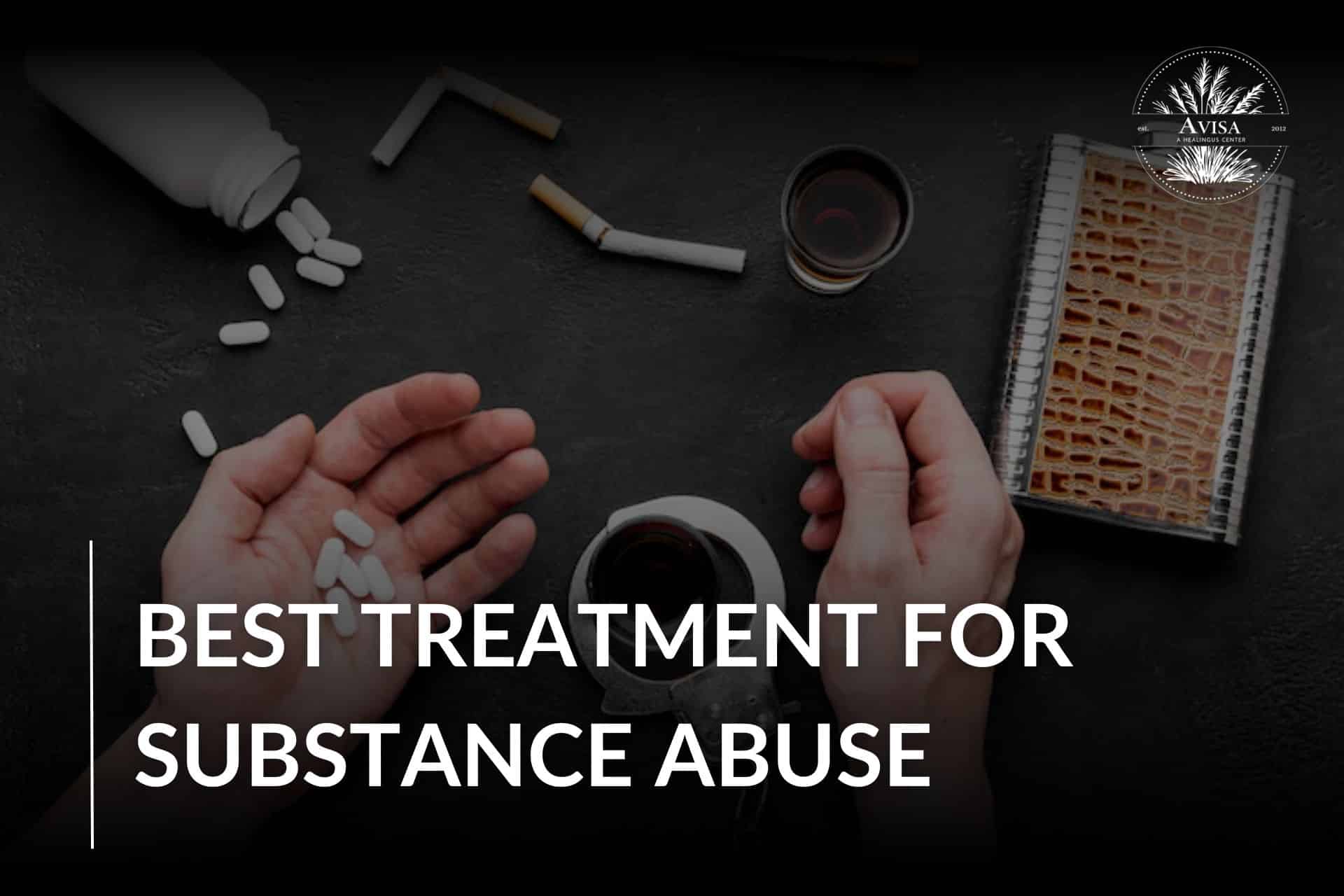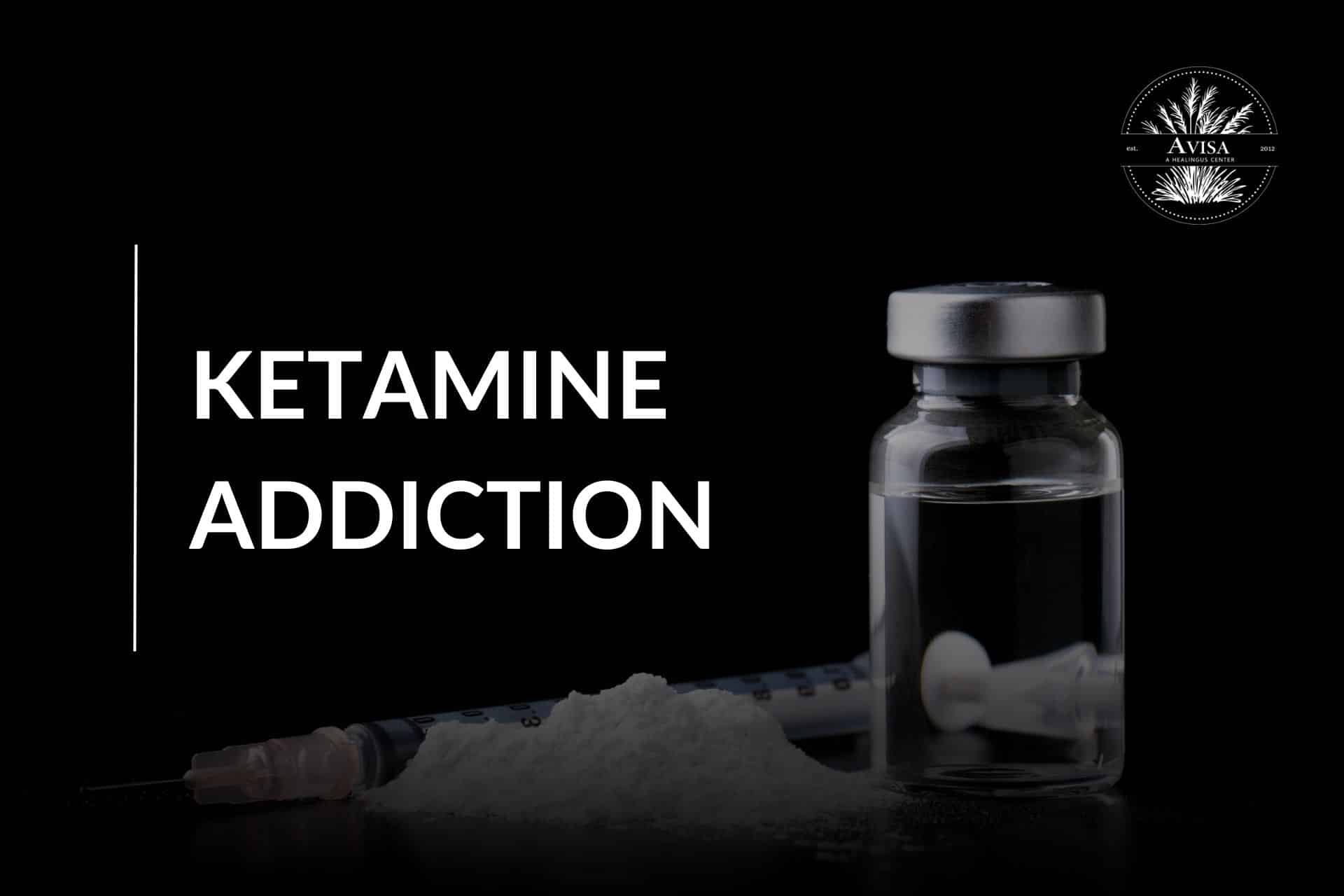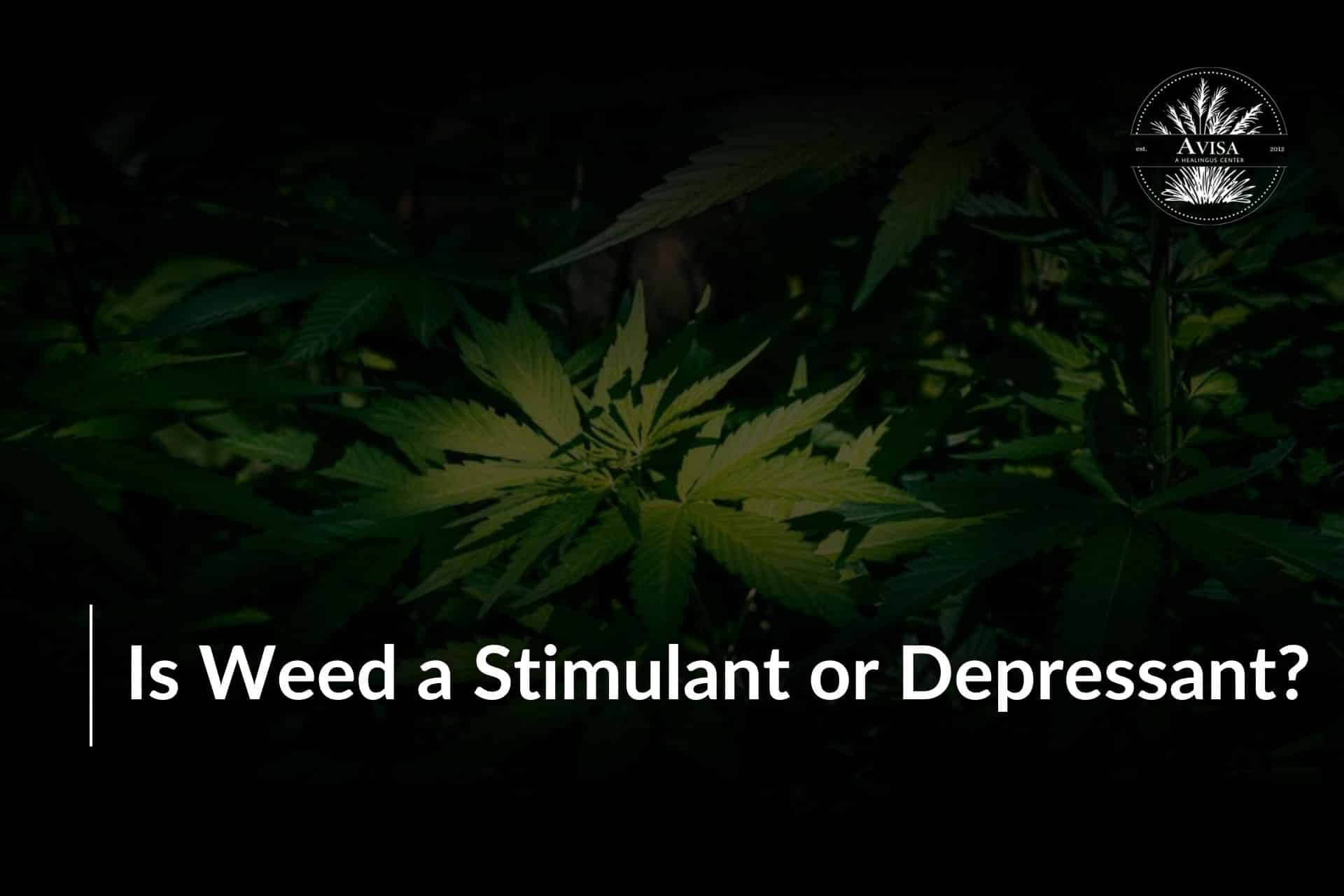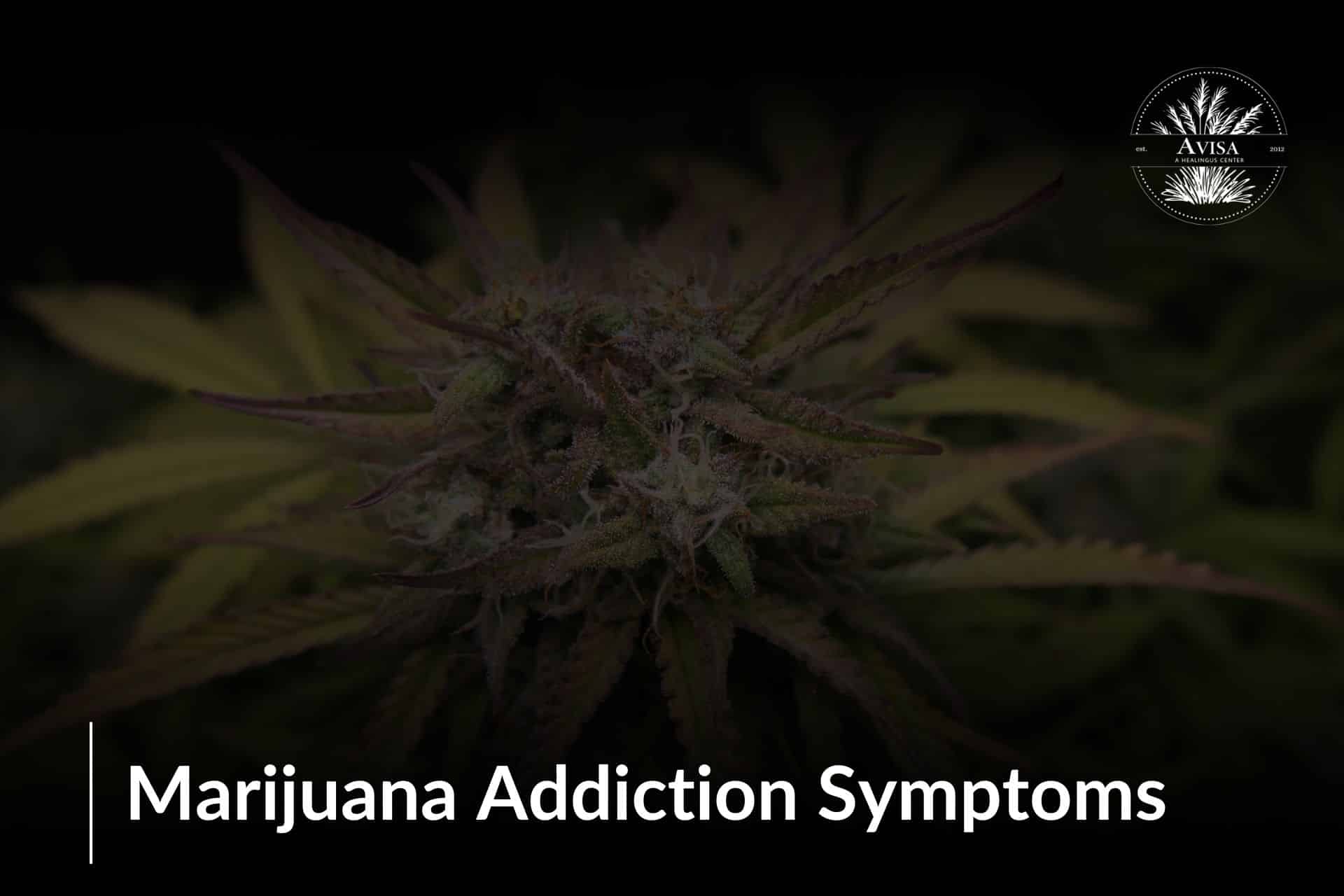Motivational enhancement therapy is a short-term counseling technique designed to ignite a person’s desire to change. This form of therapy is useful when a person is struggling with Alcoholism and Substance Abuse Disorder.
As per the recent report from the Ministry of Social Justice and Empowerment, 16 crore people in India consume alcohol, and out of this, 5.2% are dependent on alcohol. 3.1 crore people are consumers of cannabis, out of which 0.66% of users are dependent on the same.
These are alarming numbers as substance abuse is not only detrimental to health, but it also hurts the economy of a country. Substance abuse is the breeding ground for many other disorders like gambling addictions, depressive disorder, anxiety disorder, and obsessive-compulsive disorder.
However, motivational enhancement therapy turns the behaviors of self-harm and substance abuse around. This technique is focused on invoking a patient’s desire to change themselves and their problematic habits. This desire is not encouraged by external factors.
In this blog, we will discuss the details of this type of therapy, its goals, its history, and its 5 stages.
What is Motivational Enhancement Therapy (MET)?
Motivational enhancement therapy was developed by William R. Miller and Stephen Rollnick. This form of therapy is based on the principles of Motivational Psychology and Motivational Interviewing.
MET is a powerful tool in helping a person analyze their problematic behavior. As the sessions of MET progress, the person is empowered enough to initiate the process of change himself.
MET is a short-term technique that typically lasts for 4 sessions. If the therapist deems fit, the number of sessions may be increased to 6. MET is phenomenal in helping people who need to be more motivated to make a change. The MET approach focuses on helping people understand the effects of their addictions on their lives and relationships.
Brief History Of Motivational Enhancement Therapy
Motivational enhancement therapy was one of the 3 interventions that were tested in the project MATCH in the year 1993. Project MATCH (Matching Alcoholism Treatments to Client Heterogeneity) was a clinical trial that was conducted to test treatment options to help people who were struggling with substance abuse.
Project MATCH was funded by the government of the United States. The key focus of this project was the treatment of alcohol along with other substance abuse disorders.
MET was developed by incorporating the styles and techniques used in Motivational Interviewing and Motivational Therapy.
The clinical trials of Project MATCH included the investigation of 3 types of treatments for alcoholism and other substance abuse disorders:
- Cognitive Behavioral Coping Skills Therapy: The goal of this therapy was to boost self-esteem and eradicate negative self-talk
- Motivational Enhancement Therapy: The Goal of this therapy was to encourage the participants to develop a desire to change
- 12-Step Facilitation Therapy: This was a part of the Alcoholics Anonymous philosophy and encouraged the involvement of the participants
How Motivational Enhancement Therapy work?
The process of motivational enhancement therapy is typically a short-term treatment that lasts for up to 4 sessions. This is a strategy developed by William Miller and Stephen Rollnick. The primary purpose of MET is to initiate a desire to change internally in the patient.
MET works around the idea of instigating change and a desire to change from within. This is enhanced by the process of goal setting. The goal-setting process is possible with the assistance of the therapist. A good therapist will guide the patient at every stage of goal setting.
In other words, MET is largely based on the principles, techniques, and process of Motivational Interviewing. The initial sessions focus on the patient’s history. This helps the therapist understand the triggers of the patient’s substance abuse.
The first session begins with an assessment of the patient by the therapist. In the next sessions, the interviewer starts deploying the strategies and techniques of Motivational Interviewing. This helps the patient gain awareness about his habits and the repercussions of his actions. Once the patients start understanding the fault within their actions, the desire to change starts building internally.
The Goal Of MET
The ultimate goal behind motivational enhancement therapy is to help patients quit their addictions. The objective of the therapist and the patient revolves around the primary pillar of the patient’s internal motivation to change.
To facilitate this, the therapist makes use of certain tools to initiate a desire to change within the patient. This can be done by the therapist showing the patient credible data on the benefits of quitting their addictions.
The therapist encourages an internal desire to change within the patient. After the desire is invoked, the process of setting goals begins. The patients can then set goals for themselves. Empowering the patient in choosing their own goal is crucial at this stage. This ensures that the patient does not relapse into addiction after therapy sessions end.
The main objective of MET is to teach the belief in the client that they are capable of making a positive change in their lives.
What can motivational enhancement therapy help with?
Although motivational enhancement therapy was initially developed to treat addiction to alcohol and substance abuse disorder, this powerful type of therapy is phenomenal in treating many disorders such as:
- Bipolar Disorder: Bipolar disorder is categorized by extreme mood swings in the patient. The patient has phases of highs and lows in which he feels euphoric in the high phases and depressed during the low phases. MET can help the patient in identifying their shortcomings and motivating them to change.
- Compulsive Gambling Disorder: In such disorders, patients have triggers due to which they indulge in problematic behavior like gambling. MET is useful in invoking a desire to quit compulsive gambling in such cases.
- Eating Disorder: Eating disorder stems from inner insecurities and fears. A successful MET session will help the patient in overcoming their fears which would help them in combating their disorders.
- Anxiety Disorder: Patients who are suffering from depressive disorder also struggle with anxiety. MET can be helpful for patients who suffer from anxiety disorder due to their inner fears, anxiety, and subsequent actions.
- Obsessive Compulsive Disorder: Obsessive Compulsive Disorder (OCD) forces the patient to perform certain acts to ease their stress. Such behavior stems from inner fear and insecurities. MET sessions can help the patient to motivate to change themselves to get rid of their OCD.
Benefits of Motivational Enhancement Therapy
According to the National Institute of Drug Abuse, motivational enhancement therapy (MET) is useful in treating addiction to alcohol and other substances as it targets the patient’s indecisions about quitting their addictions and problematic behavior.
MET helps invoke an inward desire to change within the patient. There are several benefits of this type of therapy:
- It has a quick turnaround time: This type of therapy is spread over a short period. The sessions during MET therapy typically last for 4 to 6 sessions.
- It reduces the patient’s resistance: In cases where the patient has been a victim of substance abuse for a long period, they develop a resistance to change to justify their addictions. MET therapy actively works at reducing the patient’s resistance and insecurities that stem from addictions and substance abuse.
- It empowers the patient with a choice: MET therapy does not dictate the patient with the steps that they need to take to get rid of their addictions. Instead, MET therapy empowers the patient to choose their own pace of recovery.
MET And Stages Of Change: 6 Steps For Recovery
MET is deeply intertwined with the Transtheoretical Model of Change (TMC) and it is a different concept than other theories of change and psychology. TMC advocates that people who experience changes in their lives always go through certain stages of change.
Carlo DiClemente and James Prochaska from the University of Rhode Island developed the TMC model in 1998. The following are the 6 Steps for recovery as per the Transtheoretical Model of Change:
1. The Pre-contemplation Stage
In this stage, the patient does not acknowledge that there is anything wrong with their behavior. They have no desire to change and are comfortable with their habits. They want to continue their life as it is because they do not see their substance addiction as problematic.
2. Contemplation Stage
In the contemplation stage, as the name suggests, the client contemplates the need to change his behaviors. This stage might be triggered because of an incident or trauma. In some patients, this stage arrives when their family and friends start questioning their actions. The patient starts to weigh the triggers that lead to his addiction.
3. Preparation Stage
At the stage of preparation, the patient starts making small changes to facilitate a drastic change in themselves. This happens only after the patient has committed to change after understanding that their behavior is problematic. The patient might even have a roadmap in his mind to achieve that change or set a target to achieve within a period.
4. Action Stage
The action stage of recovery is when the patient starts to modify their behavior to incorporate change. The action stage lasts for 6 months from the day the patient has started incorporating changes. This period is based on the assumption that the patient is still in a state of change during this period of 6 months.
5. Maintenance Stage
The maintenance stage succeeds the action stage. This stage lasts longer than 6 months of the action stage. In this stage, the patient actively takes measures and precautions to work towards staying away from the problematic behavior and addictions. The patient also finds a new lifestyle that supports their new way of life.
6. The Final Or The Termination Stage
Termination is the destination for the patient. At this stage, the patient completely gets rid of their problematic behavior and their addictions. In most cases, the patient does not relapse back into their addictions even if they face the triggers of their addictions.
At the beginning of the Motivational Enhancement Therapy sessions, most of the patients are in the Pre-contemplation stage or the Contemplation stage. In such cases, the therapist has to work towards reducing resistance from the patient. The therapist can employ various techniques like affirmations and asking open-ended questions.
What are the 5 stages of Motivational Enhancement Therapy?
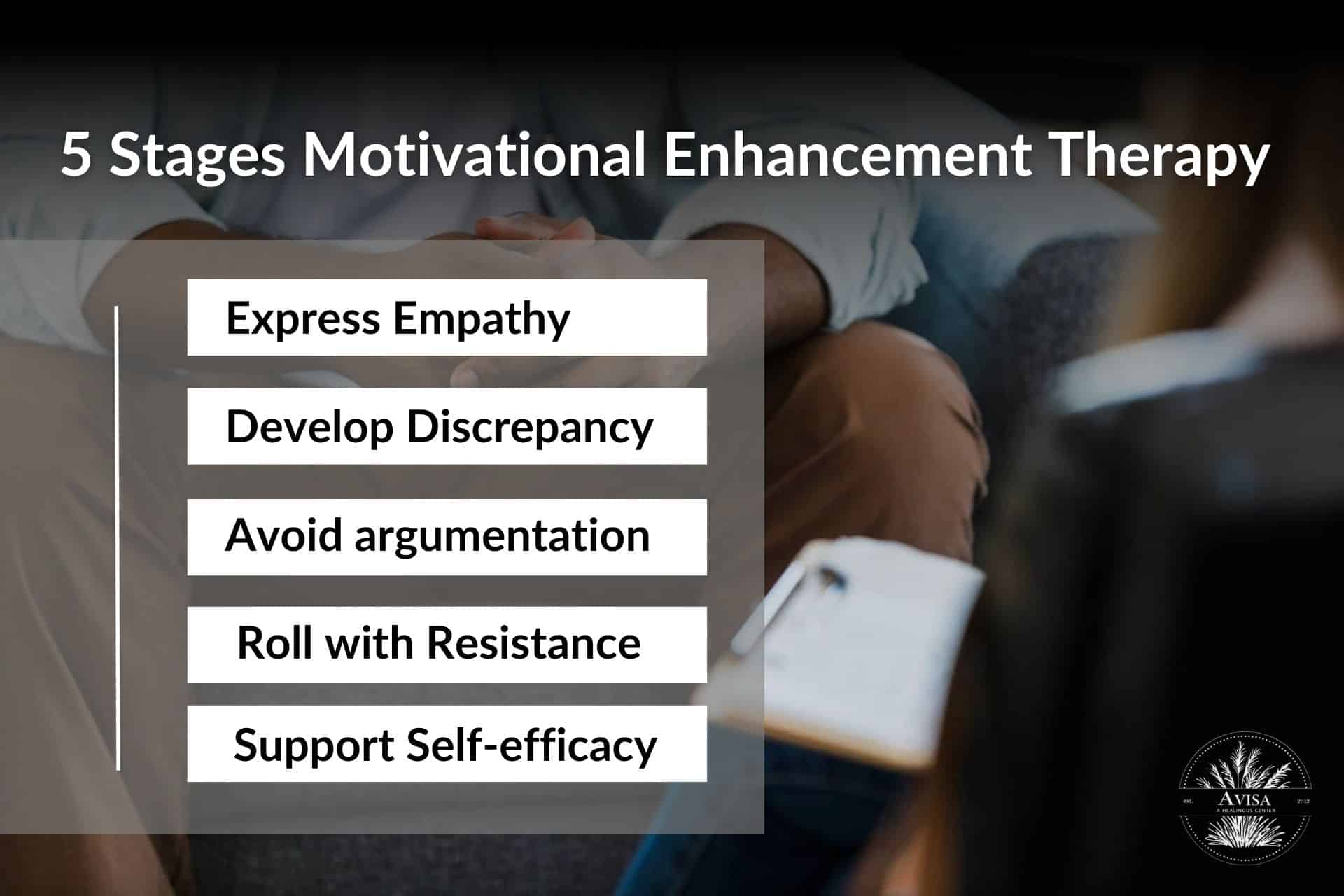
Motivational enhancement therapy lasts for a brief period. The first session of MET is an assessment session where the therapist assesses the patient’s habits and understands the triggers of addictions.
The subsequent sessions deploy the techniques and principles used in Motivational Interviewing. Motivational Interviewing is an approach that inculcates the motivation to change within the patient. This form of psychotherapy focuses on helping the patients believe in themselves and become confident enough to make a change.
The following techniques are used during the sessions of MET:
1. Express Empathy
This method helps patients learn to understand and care about other people’s feelings. Development of empathy enables them to understand how their behavior is hurting their friends and family.
This is a powerful technique that is used by the therapists as well. The therapist also shows empathy towards the patient as it develops trust between the patient and the therapist. The therapist shows empathy by listening to the patient actively and validating their feelings.
2. Develop Discrepancy
This is a crucial technique that helps the patient move from the pre-contemplation stage to the contemplation stage.
In this technique, the therapist helps the patient realize the difference between where they want to be in life and where they are in reality.
This helps invoke an inward desire to change in the patient. This desire is invoked in the light of the realization of the impact that substance abuse has on the patient’s life, career, and relationships.
People start viewing substances not as a way to handle stress and triggers, but as something harmful that should be removed from their life.
The technique of discrepancy takes time to show its effect on the patient’s thinking. Once this technique has worked, the patient is more willing to bring a change in their lives.
3. Avoid argumentation
During motivational enhancement therapy, the therapists understand the importance of making therapy a safe space for the patient. They ensure that they do not directly confront the patient or argue with them on any topic revolving around their abuse of substances.
A good therapist understands that any type of argument can result in defensive behavior in the patient. The patient might end up resisting the idea of change.
It is no secret that change is a sensitive and emotionally excruciating process. So, the therapist suggests that it’s better to start the change from within yourself, rather than waiting for external factors to bring about the change.
4. Roll with Resistance
In some cases, the patients resist the process of motivational enhancement therapy. They are not comfortable with inculcating change and desire to stay as it is.
In such cases, the therapist understands the underlying issue of the patients and encourages them to continue with the therapy sessions. They address the struggles of the patients with an open mind and empathy.
When the patient continues with therapy, the internal motivation to change gradually upholds itself.
5. Support Self-efficacy
The tenet of self-efficacy relies on the principle of self-efficacy. This therapy method makes the patient believe that they can bring a positive change in themselves.
The therapist helps the patient in identifying their strengths and capabilities. MET empowers the client with the belief that change is possible and they can change.
Frequently Asked Questions
1. What is the purpose of motivational enhancement therapy?
The purpose of motivational enhancement therapy (MET) is to invoke a desire to change within the patient. After a successful motivational enhancement therapy session, the patient will start seeing their habit of alcoholism and substance abuse as problematic.
2. What are the first two sessions of motivational enhancement therapy?
The first 2 sessions of motivational enhancement therapy revolve around the patient’s assessment. The therapist then encourages the patient to open up about their plans to reduce their addictions and motivates them to take measures to enable the same.
3. What is the difference between motivational enhancement therapy and motivational interviewing?
Motivational interviewing follows a blanket approach whereas motivational enhancement therapy will empower the patient in self-assessment and kindle a desire to change.
4. What are the 5 stages of change?
The 5 stages of change are as follows:
- Pre-contemplation
- Contemplation
- Action
- Preparation
- Maintenance
5. What are the techniques used in motivational enhancement therapy sessions?
Motivational enhancement therapy deploys the techniques used in motivational therapy and motivational interviewing. The following are the techniques used in MET sessions:
- Empathy towards others and with the patient
- Acknowledging the discrepancy between where the patient thinks they are and where they stand in real life
- Avoiding arguments with the patient
- Accepting resistance from the patient
- Supporting the patient with self-efficacy
Conclusion
Motivational enhancement therapy is no doubt a great program to enroll in if you are looking to overcome your addictions. Getting rid of your addictions once and for all is not only great for your health but it will also ensure that your standard of living rises.
The main pillar of this type of therapy is motivation. The therapist strives to instill motivation and an inward desire to change in you. More often than not, you think that a change is necessary. Motivational enhancement therapy will give you that final push to change.
At Avisa, we provide comprehensive and effective care that addresses the complex and delicate nature of mental health and substance use disorder. We strive to help individuals achieve sustained recovery and improved quality of life. We believe everyone should have access to quality care; HealingUS Centers continuously identifies and addresses systemic barriers that prevent marginalized populations from accessing care.





